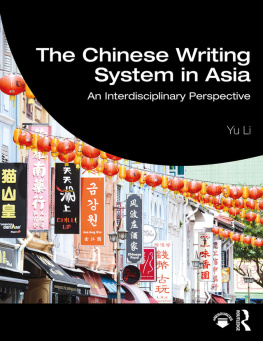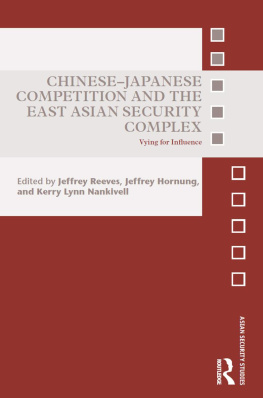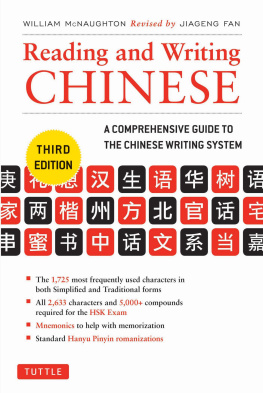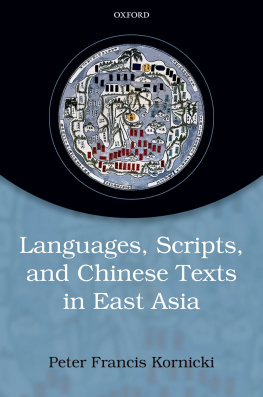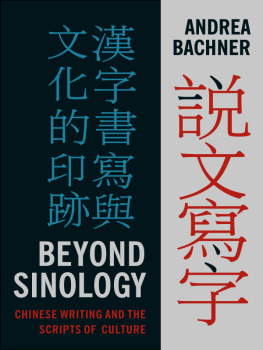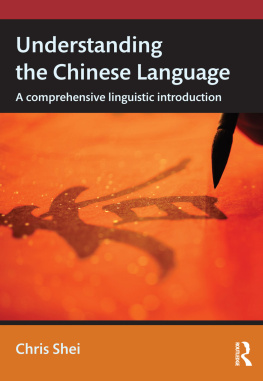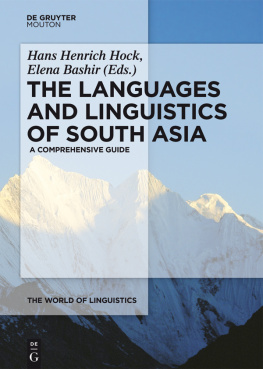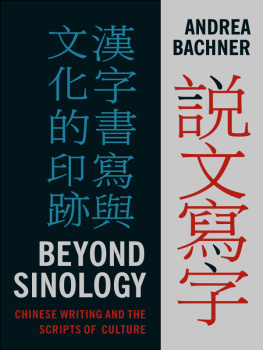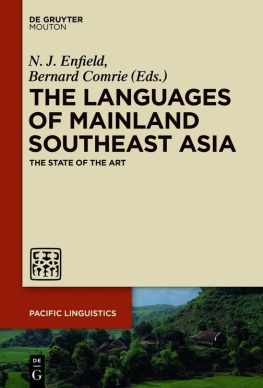The Chinese Writing System in Asia
The Chinese Writing System in Asia: An Interdisciplinary Perspective integrates a diverse range of disciplinary approaches in examining how the Chinese script represents and actively shapes personal an social identities in and beyond Asia. It is an ideal read for students and scholars interested in a broad and culturally rich introduction to research on the Chinese writing system. It can also serve as the ma text of an undergraduate course on the subject.
Key features of this volume include:
- Insights from studies of the Chinese writing system in linguistics, script reform and technology gender, identity, literature, and the visual arts;
- Examples embedded in inquiries of the cultural history and contemporary society of Asia;
- Rigorous yet accessible discussions of complex concepts and phenomena that assume no prio knowledge of Asian languages or linguistics;
- Supplementary multimedia materials and resources, including instructional support, available online.
Yu Li is Assistant Professor of Chinese in the Department of Modern Languages and Literatures at Loyola Marymount University, USA. Her research interests include Chinese linguistics, Chinese lan guage pedagogy, East Asian calligraphy, and the Chinese linguistic landscape in the diaspora.
This is a comprehensive introduction to the Chinese writing system from a wide range of disciplinary perspectives. The author writes beautifully on the linguistic, socio-cultural, an thropological, literary and artistic aspects of Chinese characters.
Hongyuan Dong , Assistant Professor of Chinese Language and Linguistics , The George Washington University in Washington DC, USA
This book is a welcome new introduction to the Chinese writing system. I see the strengths of the book in three areas: its wide scope in the topics it covers, its thoroughness in the treatment of the topics, and its balance between scholarly discussions of the topics and its attention to popular interest in the topics.
Guohe Zheng , Professor of Japanese, Ball State University, USA
The Chinese Writing System in Asia
An Interdisciplinary Perspective
Yu Li
First published 2020
by Routledge
2 Park Square, Milton Park, Abingdon, Oxon OX14 4RN
and by Routledge
52 Vanderbilt Avenue, New York, NY 10017
Routledge is an imprint of the Taylor & Francis Group, an informa business
2020 Yu Li
The right of Yu Li to be identified as author of this work has been asserted by her in accordance with sections 77 and 78 of the Copyright, Designs and Patents Act 1988.
All rights reserved. No part of this book may be reprinted or reproduced or utilised in any form or by any electronic, mechanical, or other means, now known or hereafter invented, including photocopying and recording, or in any information storage or retrieval system, without permission in writing from the publishers.
Trademark notice : Product or corporate names may be trademarks or registered trademarks, and are used only for identification and explanation without intent to infringe.
British Library Cataloguing-in-Publication Data
A catalogue record for this book is available from the British Library
Library of Congress Cataloging-in-Publication Data
Names: Li, Yu, 1978- author.
Title: The Chinese writing system in Asia: an interdisciplinary
perspective / Yu Li.
Description: Abingdon, Oxon: New York, NY: Routledge, 2020. |
Includes bibliographical references and index.
Identifiers: LCCN 2019025053 (print) | LCCN 2019025054 (ebook) |
ISBN 9781138907317 (hardback) | ISBN 9781138907324 (paperback) |
ISBN 9780429345333 (ebook) | ISBN 9781000698343 (adobe pdf) |
ISBN 9781000698701 (mobi) | ISBN 9781000699067 (epub)
Subjects: LCSH: Chinese charactersAsia.
Classification: LCC PL1171 .L387 2020 (print) | LCC PL1171 (ebook) |
DDC 495.11/1dc23
LC record available at https://lccn.loc.gov/2019025053
LC ebook record available at https://lccn.loc.gov/2019025054
ISBN: 978-1-138-90731-7 (hbk)
ISBN: 978-1-138-90732-4 (pbk)
ISBN: 978-0-429-34533-3 (ebk)
Typeset in Minion Pro
by Apex CoVantage, LLC
Visit the eResources: www.routledge.com/9781138907324
Contents
Guide
The idea of this book came about in the second year of my teaching career. After having taught a few Chinese language courses, I was eager to create something new to offer my students, something that would spark their curiosity, challenge their thinking, and inspire their creativity. I wanted them to see, as I did at the time and still do now, that learning Chinese was not just about being able to communicate in the language; it could be and should be, in no small measure, a journey of intellectual discovery and growth. And so was my experience researching for and teaching the course Chinese Writing Systems in Asia at Emory for nearly ten years since then.
Now this book almost feels like a gift to myself: the next time when I teach this course, I will be able to use it as a main text. I have had to rely on a collection of scholarly writings that was challenging to present as a coherent body of text in an introductory course. Having a systematic and accessible set of readings on hand will be a welcome change. I hope it will make it easier for interested colleagues in the field to offer similar courses as well. Besides what is in the print edition and the electronic version of the book, I have also made available additional materials and tips for teaching on the companion website, including exercises and activities that can be integrated into classwork or assigned as homework.
Although intended as a textbook for a college course, this volume is by no means restricted to a classroom audience. General-interest readers curious or enthusiastic about the Chinese script will also find the broad-ranging topics interesting and accessible. This book is designed to be an interdisciplinary introduction to the Chinese writing system. The chapters integrate studies of the Chinese language, writing, and linguistics into inquiries regarding script borrowing, writing reform, technology, gender, identity, visual art, and literature, and they assume no prior knowledge about any of these topics or about Chinese language or linguistics in general. are foundational and will be best read first, but the remaining ones can be more flexibly sequenced.
It is also with the development of my pedagogical field in mind that I have written this book. As strongly as ever, I believe that there is much more to be said and done about teaching Chinese than the worthy endeavor of raising students communicative proficiency. Language and writing are at the core of humanistic flourishing as we see in this volume, the Chinese writing system has been and will continue to be part and parcel of the forging and reshaping of social, cultural, and certainly personal identities of those whove embraced it and those whove abandoned it. Language and culture instructors of Chinese are obligated to bring our students closer to such understandings, and I hope this book is a step in that direction.
A small step, that is. The subject of Chinese characters is endlessly fascinating, and I have had to limit the topics to the selected few that there is room to accommodate and worry about their uneven treatment. Indeed, among the numerous decisions made during the writing process, I suspect not all were wise, and any true wisdom that does come through is probably rubbing off the many works I have consulted and to which I am greatly indebted.

